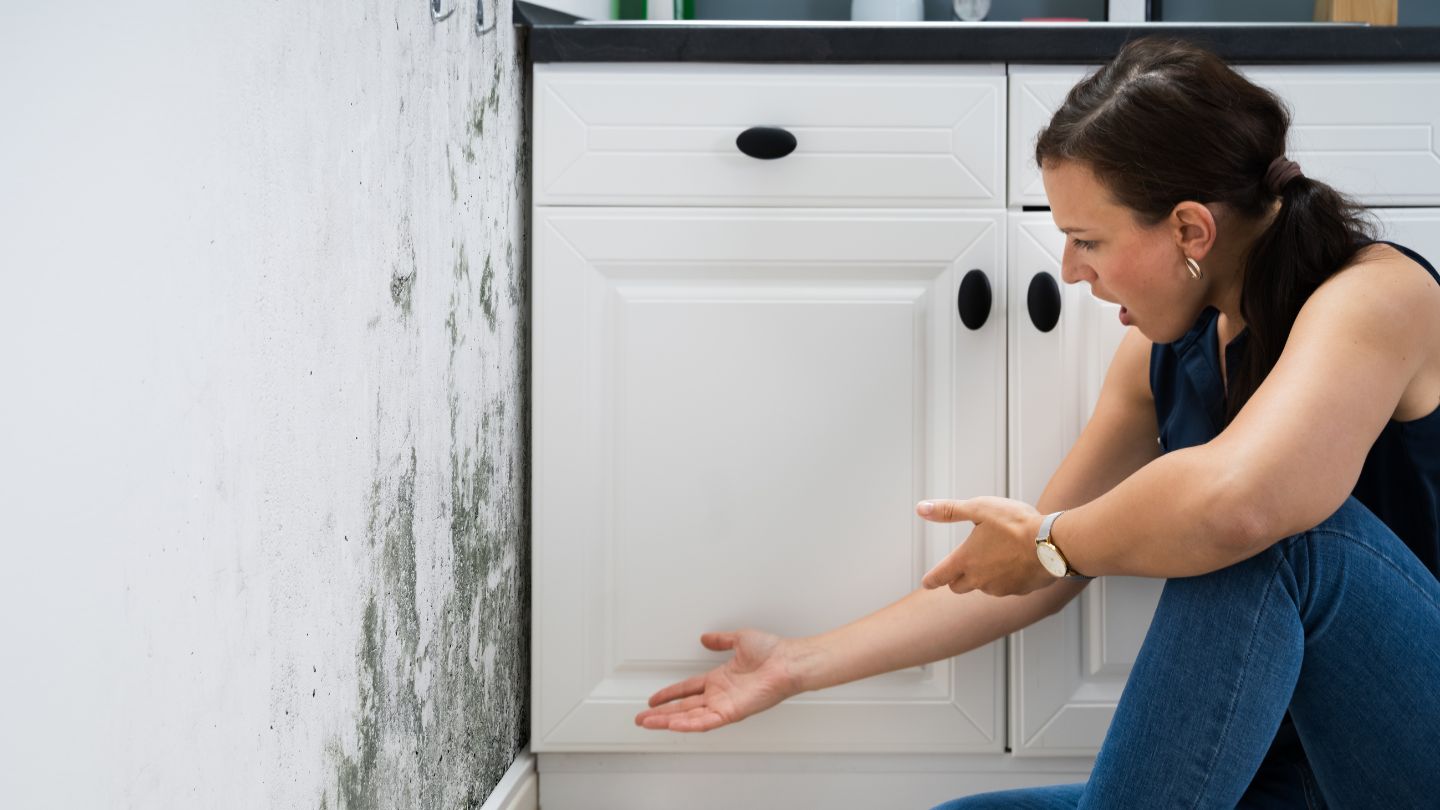
by Mold-B-Gone | Jul 9, 2024 | Mold Facts
Mold damages property and poses health dangers—in addition to forming ugly marks on walls. Mold spores cause potential inflammation and respiratory complications. Because the spores can float through the air, it is common to wonder if opening windows helps with mold.
Moisture Gradient Dilemma
Keeping windows open to help with mold works in two different ways.
1. Opening a window to reduce spore buildup
Opening a window only works if there is less moisture outside than inside. If you open your windows when there is more moisture outside, that moisture moves in and increases spore colony formation, even though the intention was to allow accumulated spores to blow out through the windows! So, will opening windows help with mold? It depends on the level of humidity inside and out.
2. Opening a window to allow in cold air
Warm, humid environments accelerate spore multiplication. Meanwhile, opening a window to allow in cold air may lower the temperature, thus hindering spore multiplication. If that cold air is humid, however, this may increase mold spore growth and spread them further!
Logical Considerations
Does opening a window help with mold or not? Opening a window when it is raining allows for more moisture to enter and intensify spore formation. On the flip side, opening the window will lower the warm room temperature, which favors colony formation. However, wind may blow in more spores and moisture from outside. Since opening windows is not enough to solve a mold infestation, seek professional guidance from mold remediation experts in Atlanta, GA
Your DIY Effort
Here are some steps to help reduce spore multiplication in your household:
- Strategically position dehumidifiers closer to the colony to reduce moisture.
- Use bathroom vents to reduce indoor moisture.
- Ensure wet clothes are put in the dryer and not hung indoors.
- Repair leaking roofs, water lines, and broken floors to reduce indoor moisture.
- Consider allowing spores and their mycotoxins to leave by briefly opening the house as you remove the colony.
Read More: Top 15 Mold Prevention Tips
Trust Expert Intervention
The management and control of mold is not easy, and you may not be able to handle it with your limited know-how. DIY intervention risks disturbing the mold colony and releasing mycotoxins into the atmosphere, which may pose severe health risks and possibly spread the mold more throughout your house.
Do you need help ridding your home of mold? Mold remediation experts in Atlanta are up to the task! By engaging experts like Mold-B-Gone Remediation, you are taking a vital step toward eradicating mold and securing your family against its harmful effects. Contact us today for more information.
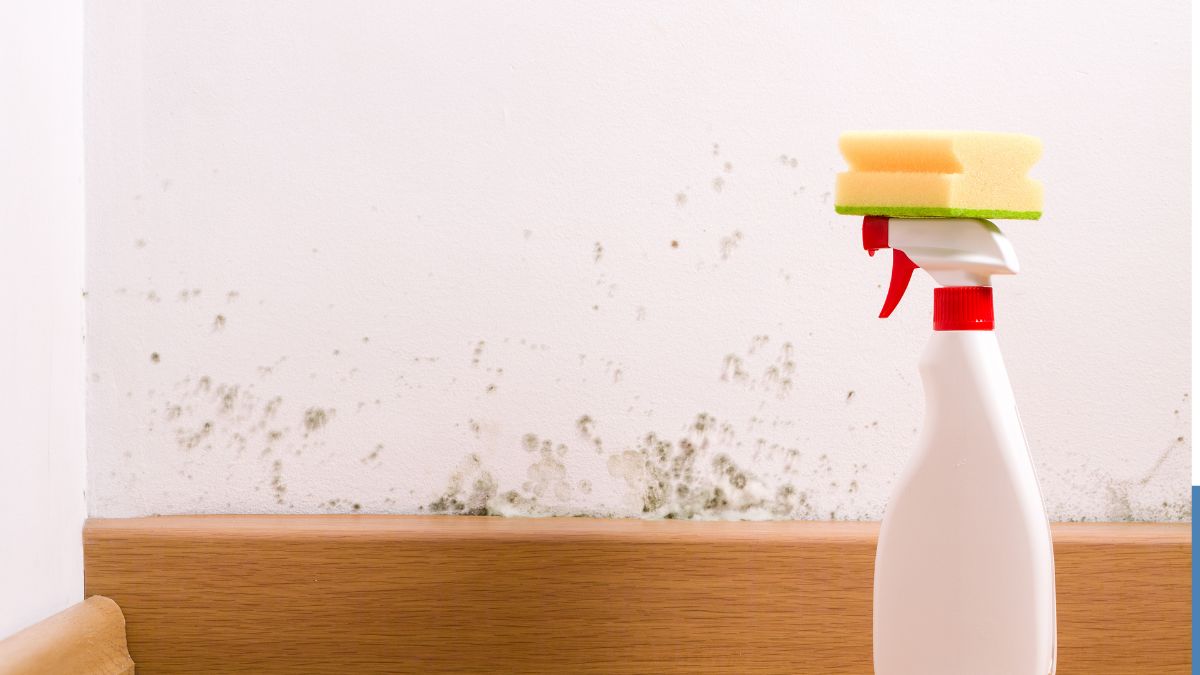
by Mold-B-Gone | May 8, 2024 | Mold Facts
Mold in the home can present itself in various colors. Recognizing these colors can help you identify potential risks and address mold issues promptly. Here, we explore the different types of mold colors commonly found in households.
Black Mold
Black mold is one of the most well-known mold color types, and it often incites concern due to its association with health risks. The most infamous is Stachybotrys chartarum, also known as toxic black mold. This mold thrives in damp, leaky areas like basements and roofs. It can produce harmful mycotoxins that lead to respiratory issues, headaches, and even blood poisoning.
However, not all black molds are toxic. Alternaria and Aspergillus are other types of mold colors that can appear black. While Alternaria is less dangerous, often exacerbating asthma, Aspergillus is a common household mold that usually doesn’t pose severe health risks unless found in large quantities.
Read more: The Truth About Black Mold!
White Mold
White mold is another frequently encountered color, often appearing fuzzy or powdery. Chaetomium is a type that prefers dark, damp areas and can emit a musty odor. Penicillium, which can sometimes appear white, is significant in medical history for penicillin but can cause allergic reactions if mishandled. Alternaria, which can change colors based on conditions, is another common white mold.
Yellow Mold
Yellow mold can be quite deceptive, ranging from pale to bright hues. Aspergillus can sometimes appear yellow, typically low-risk but requiring attention if found in large amounts. Serpula lacrymans target wood, threatening structural integrity rather than health. Epicoccum nigrum and Geomyces pannorum are other yellow molds that thrive in damp conditions. Particular caution is needed for yellow slime mold, an unrelated organism that is very toxic.
Red Mold
Red mold is often seen on water-damaged materials like drywall and particleboard. While the color red can appear in various molds, Aspergillus is a common culprit due to its prevalence. Neurospora is more likely the red mold found on food, indicating spoilage.
Green Mold
Green is the most common color for mold, with thousands of molds appearing green at some point in their lifecycle. The different types of mold colors that typically appear green include Aspergillus, Penicillium, and Cladosporium. While green mold is common, it is still essential to address it to prevent potential health issues and structural damage.
When in Doubt, Call in the Professionals
Identifying different kinds of mold colors can help you understand the potential risks and take appropriate action. Mold, regardless of color, can pose health risks and damage your property. For a thorough and safe solution, contact Mold-B-Gone Remediation, your mold remediation experts in Atlanta.

by Mold-B-Gone | Apr 10, 2024 | Mold Facts
Mold can be a persistent problem in homes, especially in humid environments. If you’re facing mold issues, understanding how to properly prepare for mold remediation can make the process smoother and more effective. This guide offers tips to prepare your home for professional mold removal, focusing on essential measures before the experts arrive to tackle the mold in your home.
Initial Steps Before Mold Remediation
Before the professionals arrive, there are several key actions you should take to ready your home for the process. First, it’s crucial not to disturb any mold-infested areas. Moving items or attempting to clean mold can spread spores throughout your home, complicating the remediation efforts.
To safeguard your health and that of your family, consider finding temporary accommodation. Just as you would secure a safe place for your pets during the remediation, it’s wise for you and your family to stay elsewhere.
Securing Your Home Environment
As part of your preparation, you should also take air quality samples. Knowing the specific types of mold present can help the professionals tailor their approach, ensuring a more targeted and effective remediation. Keeping your belongings stationary is vital, as even moving a small item can disperse mold spores.
Additionally, take photographs of all affected areas. These images can provide a before-and-after comparison and serve as documentation in case of any disputes or damages. This is a crucial step in preparing your home for mold removal.
Safeguarding Belongings and Living Areas
Another important aspect of preparation involves your personal items. Wash any clothing or fabrics that have been exposed to mold. Use hot water and regular detergent instead of bleach, which can damage delicate materials. After washing, seal these items in plastic bags to prevent recontamination.
During the mold remediation, your home will undergo extensive cleaning and possibly structural changes to eliminate mold sources and prevent future growth. Understanding this time frame and planning accordingly can help you manage the disruption to your daily life.
Ready, Set, Remediate!
As you prepare your home for professional mold removal, remember that the key is to minimize interference with the affected areas and safeguard your health by staying elsewhere. With these preparations, the remediation team can work more efficiently, ensuring that your home is mold-free and safe.
For the most effective mold solutions in Atlanta, trust the experts. If you’re dealing with mold issues, don’t hesitate to reach out to Mold-B-Gone Remediation. We specialize in comprehensive mold remediation, offering services that include IAQ testing and whole-house sanitizing. Let us bring our expertise to your doorstep and provide essential mold removal services in Atlanta.
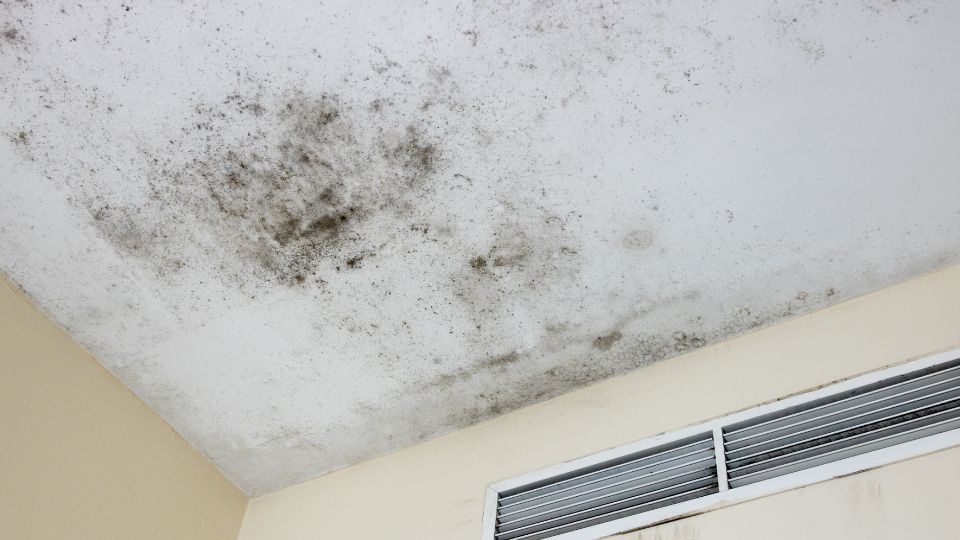
by Mold-B-Gone | Jan 9, 2024 | Mold Facts
Have you ever wondered if a small roof leak could escalate into a major mold issue in your home? Many homeowners underestimate the impact of roof leaks and mold, but the truth is startling. This blog addresses the nitty-gritty of how mold in ceilings from leak situations can be more than just a nuisance.
Causes of Roof Leaks
At the heart of this issue, understanding the causes of roof leaks is crucial. A common misconception is that roofs are highly durable and invincible against external factors. However, the materials are more susceptible to damage than one might think, leading to leaks.
Besides human activity, nature plays its part. The U.S. averages about 30 inches of rain yearly, putting immense strain on roofs and gutters. Clogged or damaged gutters fail to divert rainwater adequately, resulting in water damage and, potentially, mold from roof leak scenarios.
Another significant factor to consider is the condition of your shingles. They are your home’s first defense line against harsh weather, but over time, they can succumb to wear and tear, leading to leaks.
What to Look for to Identify a Leak
Detecting a roof leak early can be a game-changer in preventing mold in your apartment or house. The most obvious sign is a water stain on your ceiling—a discolored, often brownish puddle shape. However, not all leaks are that conspicuous. Sometimes, they manifest as a subtle drip from the ceiling or even as organic growth, like moss, on your exterior walls.
How Leaks Escalate to Molds
Moisture from leaks creates a perfect breeding ground for mold. If the issue is in the attic, condensation can be the primary culprit. The real concern is the speed at which mold can spread. It can start from a small area and rapidly infest other parts of your home.
Black mold is particularly notorious for posing severe health risks. Hence, addressing leaks promptly is vital to safeguarding both your home’s integrity and your health.
Read more: Why Is Black Mold A Health Concern?
The Bottom Line: Prompt Action Is Key
A leaky roof can cause mold, and the implications are significant. Timely detection and repair of roof leaks are essential in preventing mold growth and its consequent hazards. Remember, addressing a leak today can save you from a mold nightmare tomorrow.
Ready to Tackle Mold in Your Home?
Reach out to Mold-B-Gone Remediation, the mold remediation experts in Atlanta, for exceptional service and peace of mind. Don’t let mold take over your space—we’re here to help.
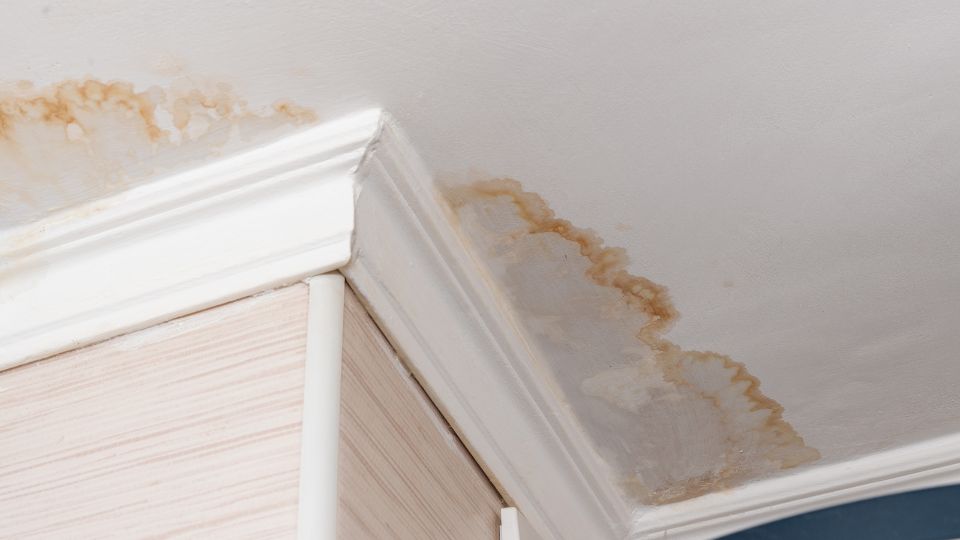
by Mold-B-Gone | Jan 2, 2024 | Mold Facts
Water leaks in your home, no matter how minor they might seem, can be a significant concern. The primary reason? The risk of mold development. Mold finds a haven in moist environments, and a one-time water leak, if not addressed swiftly, can escalate into a serious health hazard for your household.
Here’s an in-depth look at preventing mold growth following a one-time water leak, ensuring your home remains a safe and healthy environment.
Rapid Response Is Key to Mold Prevention
The speed at which mold can grow from water damage is alarming. Mold spores can start forming within 24–48 hours following water damage, a period often shorter than the time it takes to dry out affected areas completely. Enhancing air circulation and having cleaning tools at the ready can significantly reduce the risk of mold development.
Health Risks of Mold from Water Leaks
Mold, particularly types that flourish due to water leaks, can pose severe health risks. Some of these risks are:
- Exposure to mold in early childhood has been linked to an increased risk of asthma, and adults are not immune to its effects.
- Molds produce mycotoxins, which can trigger adverse immune responses and cause lasting respiratory issues.
Read more: What Are The Top 3 Water Damage Hazards?
Understanding these risks is crucial for effective mold prevention after a water leak.
Steps to Prevent Mold After a Single Water Leak
- Act Quickly: The CDC advises cleaning up within the first 24–48 hours post-flood to hinder mold formation. Even a minor leak can have similar consequences, necessitating immediate action.
- Clean and Dry the Area: Drying out the leak area is vital as mold thrives in damp conditions. Employ fans for air circulation and open windows if possible. Cleaning the area, even without visible spores or growth, is critical. Professional help might be required on porous surfaces like carpets or wood.
- Control Humidity Levels: High humidity is a breeding ground for mold. Use dehumidifiers to lower humidity in the affected area, and consider a humidity gauge to monitor and manage the levels effectively, reducing the likelihood of mold growth in the attic or other areas.
- Ongoing Vigilance: Post-cleanup, continuous monitoring is essential. Mold can remain dormant and reactivate under favorable conditions. Keep an eye on humidity levels and be alert to musty odors, signs that mold might still be present.
Final Recommendations
Understanding the risks and steps for water leak mold prevention is crucial. While mold from a one-time leak can be managed effectively, being proactive and vigilant is key to ensuring your home remains a healthy environment. Trust Mold-B-Gone Remediation, your mold remediation experts in Atlanta, for all your mold prevention and remediation needs.
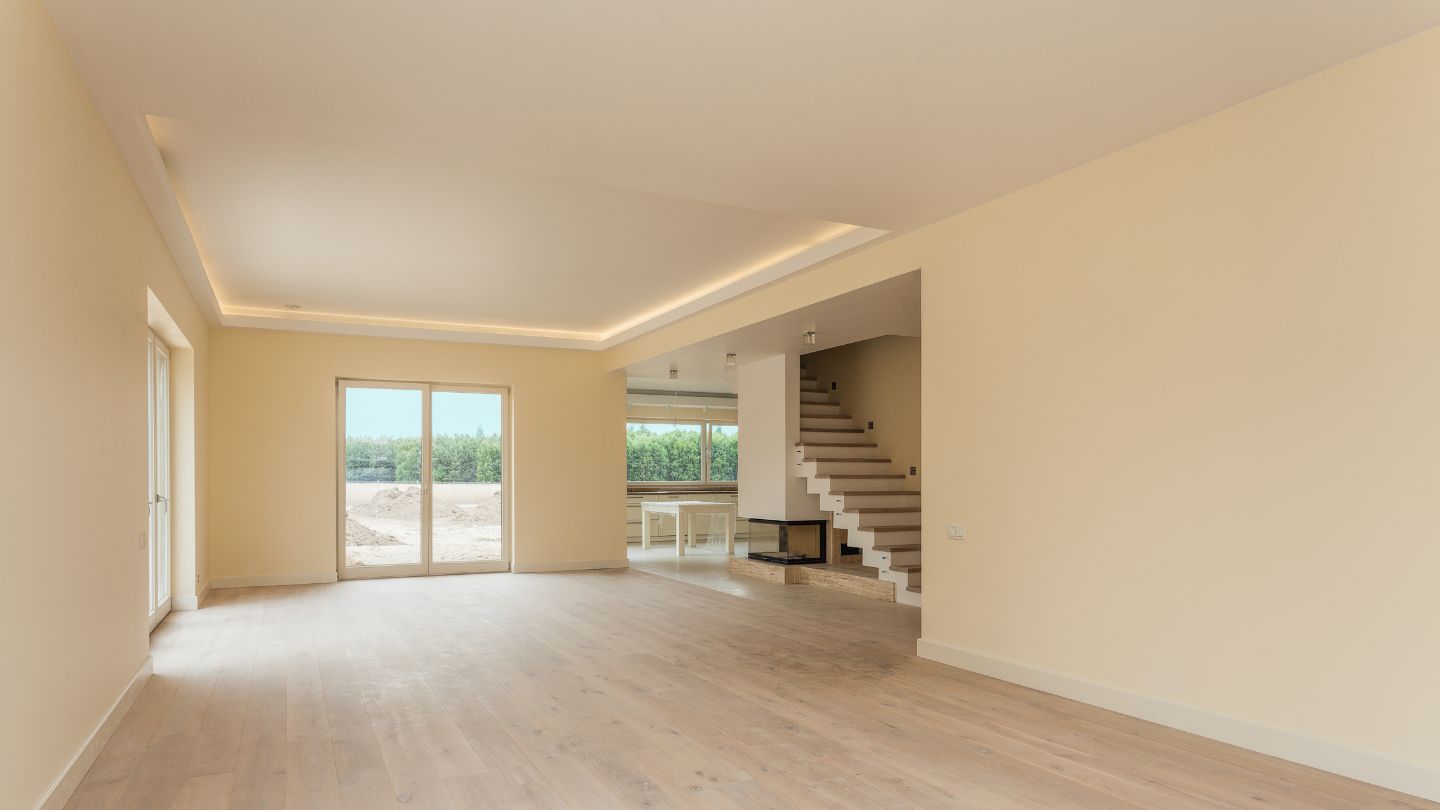
by Mold-B-Gone | Dec 9, 2023 | Mold Facts
Mold is a persistent challenge in the construction industry, especially in new buildings where the combination of heat, water, and organic materials creates an ideal breeding ground for this unwelcome guest. This blog outlines practical and straightforward strategies for keeping mold in new construction homes at bay.
Proactive Measures for a Mold-Free Environment
The first line of defense against mold in new construction is ensuring the building is watertight. This process, known as ‘drying in,’ involves meticulous sealing of the building’s envelope to prevent water ingress. Key actions include installing a water-resistant roof, employing watertight exterior siding, fitting watertight windows, and sealing all potential entry points around windows, doors, and other openings.
Handling Construction Materials with Care
Many construction materials, like wooden frames and subfloors, can absorb moisture during wet weather conditions. It’s crucial to allow these materials adequate time to dry out completely before proceeding with the drying-in process. Ignoring this step can lead to trapped moisture within the structure, creating a fertile ground for black mold and other fungi to thrive.
Addressing New Sources of Humidity
Even with effective drying-in, new construction can still face mold challenges from additional moisture sources introduced during the building process. For instance, renovation activities like asbestos or drywall removal often require water usage, increasing indoor humidity. In such scenarios, the use of dehumidifiers can be a game-changer, helping to maintain a dry environment that is conducive to preventing mold in new construction.
Read more: How Mold Grows in Different Humidity and Temperature Conditions
Understanding Mold Growth Dynamics
In the early stages of construction, using non-organic materials such as metal and concrete alongside fresh hardwood reduces the risk of mold growth. However, once softer, organic materials like ceiling tiles and drywall are introduced, the risk escalates. These materials provide the perfect conditions for mold to develop, sometimes in as little as 48 hours after exposure to moisture.
Thorough Pre-Installation Checks
Before installing drywall or other susceptible materials, it’s crucial to ensure everything within the building’s structure, including windows, siding, and roofing, is properly sealed. Additionally, verify that all wooden elements are fully dry to prevent potential mold growth.
Contingency Planning for Project Interruptions
Unexpected interruptions, like adverse weather or funding issues, can halt construction or renovation projects. In such cases, it’s vital to dry and seal off as much of the construction as possible. Installing dehumidifiers can help maintain a dry environment, serving as one of the ways to remove mold from new construction.
Get Expert Mold Solutions Today
Looking for a reliable mold removal service in Atlanta? Contact Mold-B-Gone today, and let our team of professionals ensure your home stays mold-free and healthy. Trust us for top-notch service and peace of mind.






